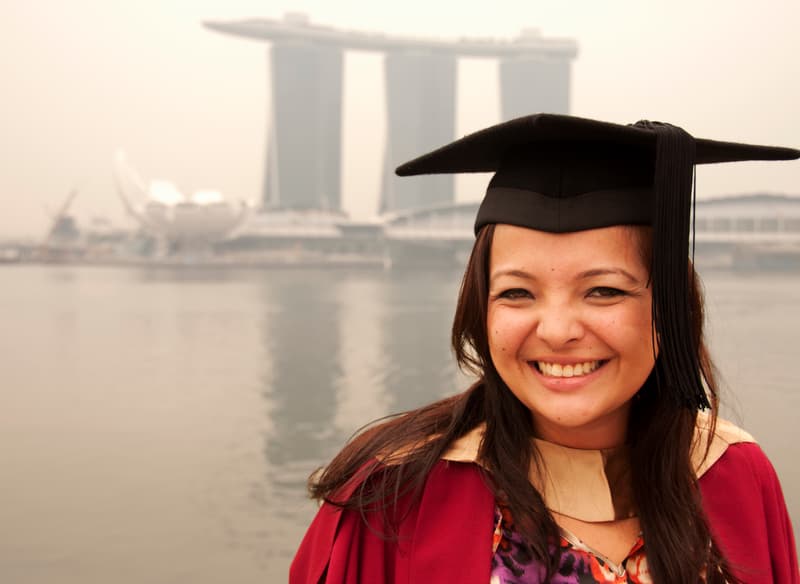International Consultant: Trainings for Provision of Decent Work in Care Enterprises (RE-ADVERTISED)
Remote | Home Based - May require travel
- Organization: UNWOMEN - United Nations Entity for Gender Equality and the Empowerment of Women
- Location: Remote | Home Based - May require travel
- Grade: Consultancy - International Consultant - Internationally recruited Contractors Agreement
-
Occupational Groups:
- Labour Market Policy
- Social Entrepreneurship
- Closing Date: 2024-01-25
Background
UN Women, grounded in the vision of equality enshrined in the Charter of the United Nations, works for the elimination of discrimination against women and girls; the empowerment of women; and the achievement of equality between women and men as partners and beneficiaries of development, human rights, humanitarian action and peace and security. Women’s Economic Empowerment is one the of the key strategic priorities stated in UN Women’s Global Strategic Plan (2022 -2025) and UN Women’s Strategic Note for Asia and the Pacific (2023 -2025). In UN Women’s Strategic Note for Asia and the Pacific (2023 -2025) transforming the Care Economy has been identified as a key priority and multiple partnerships, programmes and future opportunities have been established to advance this work.
As the COVID-19 pandemic highlighted, the provision of care is key to the wellbeing of families, communities, economies, and societies. In Asia and the Pacific, and globally, this work is typically unpaid and mostly carried out by women. Many households in Asia rely on domestic workers to meet care needs. UN Women Regional Office for Asia and the Pacific has been working in partnership with multiple organizations in the region to increase advocacy and awareness raising activities highlighting the supply and demand gaps of care provision, the lack of public investments in the care economy and the implementation of more comprehensive care policies aligned to the 5R Framework.
This work has illuminated the need and opportunity to explore innovative delivery models, including market-driven and blended solutions between the public and private sector. There is also an increased number of companies committing to gender-equality in the Asia-Pacific, including also for example providing employer-supported care solutions and more SMEs offering solutions in the care economy, including many businesses leveraging technology. In partnership with innovative partners such as Bopinc and Seedstars, UN Women implemented the region's first-ever , a 5-month program in 2021 which took 13 Asia-Pacific care enterprises through a journey of business development, investment readiness support, and capacity building to become more gender-responsive businesses.
Bringing together first-hand learnings from the Accelerator, a rapid policy assessment, and entrepreneurial landscaping, UN Women’s recently published delves into the opportunities, challenges, and actions needed to leverage entrepreneurship as an innovative means to redress the unequal care burden and promote women's economic empowerment. In an effort to generate more evidence and knowledge, UN Women joined forces with Value for Women in May 2022 to research as part of the global IDRC and Soros Economic Development Fund Global Research Programme: ‘Transforming the Care Economy through impact businesses and investment (TCEII).’ While Value for Women piloted capacity-building materials and research to support gender-lens investing with a care lens, UN Women conducted frontier research on how digitally-enabled care enterprises can be a solution to provide more decent work opportunities in the care economy.
In September 2023, UN Women completed the care research project and launched the report “ The research had the main objective to identify and illustrate potentially good practices of digitally enabled market-based models in the care economy and to assess the potential role of these models in generating work opportunities that move care workers, including domestic workers, closer to decent work. The research was conducted with four enterprises that were part of the first Care Accelerator, with all providing direct care services and with varying levels of digitization and offline components.
UN Women utilized four dimensions to assess benefits and challenges for women working in the digitally enabled care economy:
- Flexibility and Autonomy
- Entitlement and protection
- Income
- Representation
The research found that digitally enabled care enterprises (DECEs) can take steps to accelerate progress for digitally enabled care workers towards decent work and women’s economic empowerment. DECEs have established pathways to decent work that are particularly important in contexts where care workers, including domestic workers, have historically suffered from workplace vulnerabilities and severe decent work deficits. UN Women seeks to build upon existing best practices documented in the research and further develop training materials to support care enterprises providing direct care services to children, the elderly, and people with disabilities to integrate the provision of decent work into the core of their business practices.
Building on the work to transform the care economy in the Asia-Pacific, in March 2023, UN Women joined forces with SAFEEM (part of the Seedstars Group) and Bopinc to launch the new ‘Gender-inclusive Care Entrepreneurship Ecosystem Programme’ (GICEEP), which is supported by the Visa Foundation and IDRC. Over the course of 18 months, the programme seeks to strengthen a gender-inclusive care ecosystem through piloting innovative Base of the Pyramid models, running a Care Accelerator for care SMEs and strengthening capacity of ecosystem players and policymakers to deliver an inclusive care economy.
The is a 10-month-long acceleration program that aims to support the development of gender-inclusive care enterprises. Through business training, mentorship, financial assistance, and capacity building, APCA seeks to empower innovative solutions that enhance access, affordability, and quality of care services in the Asia-Pacific region. The program integrates bespoke curriculum and expert mentorship to support enterprises in implementing gender-responsive business conduct. Following an initial kick off at the in Malaysia, curriculum delivery began in July 2023 with a cohort of 13 care enterprises across South and Southeast Asia providing direct care services for children and the elderly, predominantly.
In delivery of the gender modules of the Asia-Pacific Care Accelerator curriculum, UN Women has leveraged existing resources, such as the WE RISE: Toolkit Entrepreneurs to provide a framework for gender-responsive business conduct aligned to the Women’s Empowerment Principles (WEPs). In seeking to build on the DECE research findings to strengthen the capacity and tangible action steps for care entrepreneurs to provide decent work for care workers while building and growing their businesses, UN Women is seeking for an International Consultant: Trainings for Provision of Decent Work in Care Enterprises. The consultant will develop practical and action-oriented training packages on critical elements of decent work for care enterprises in the Asia-Pacific, taking into account a variety of business models (e.g., client home provision, center-based, employer location, on-demand, digitally enabled), the different types of care (childcare, elderly care and care for people living with different abilities (excluding healthcare)) as well as the different backgrounds of care workers, including migrant care workers. The training package is inclusive and interactive designed training presentations, worksheets, model policies SOPs and case studies etc. The consultant will pilot test select trainings to the APCA cohort as well as provide a ToT for UN Women program personnel.
The consultant will be working in the Women’s Economic Empowerment Team, reporting to the WEE and Migration Programme Lead. The International Consultant will work in close collaboration with the ROAP programme and operations team, as well as with SAFEEM, the APCA cohort and potentially UN Women Country Offices.
Please see: UN Women. Asian Development Bank. (2022) . UN Women (2020) . UN Women (2020) .
UN DESA. 2020. .
Please see: ILO. 2018. .
UN Women 2022, Toolkit on paid and unpaid care https://www.unwomen.org/sites/default/files/2022-06/A-toolkit-on-paid-and-unpaid-care-work-en.pdf
UN Women, Trends and Opportunities Report to advance Gender Equality in Business in Asia and the Pacific (p.20)
Duties and Responsibilities
CONTRACT PERIOD AND WORK LOCATION
The period of this consultancy is for 6 months; the consultant will be remote but preference for an Asia-Pacific time zone is strongly preferred. Bangkok based is a plus but not necessary.
SCOPE OF WORK AND DUTIES AND RESPONSIBILITIES
1. Conduct a rapid review and consultative exercise to prepare an approach and outline for trainings: Conduct a rapid review of existing trainings and materials in aligned with a current legislative and policy framework for decent work provision for SMEs in South and Southeast Asia in the care economy. Conduct a review of best practices documented in for example in the DECE research, through desk research, consult experts and through consultations with selected enterprises, who participated in the Care Entrepreneurship Accelerator 1.0 and 2.0. Consolidate findings and available frameworks and approaches to develop a compelling training approach and outline curriculum for care enterprises operating in South and Southeast Asia to understand and implement practices for the provision of decent work.
2. Design comprehensive Training Packages (user’s manual for trainers, ppt with examples and case studies from Asia-Pacific, worksheets, model policies): Develop the contents of the catalogue in English, targeting an Asian audience and integrating lessons learned, best practice cases, and targeting needs of care enterprises operating in South and Southeast Asia; Develop and design the materials to be print-ready and to be used in digital versions. The trainings should be designed and presented in a way that they are relevant for different type of care enterprises, looking at different types of care as well as the different type of business models.
The Training should be developed in an easy-to-understand language for theoretical frameworks and policies, it should include various practical examples from different care entrepreneurs across Asia and the Pacific (and beyond if applicable). The training materials should be also developed in an interactive way, with practical tools and with the aim they can be easily provided by different trainers and potentially been translated into self-learning online. Below is a suggested outline , which was based on the recently published research. Overall, the trainings must include and deliver on the following objectives:
- Create an understanding and overview what is decent work (including relevant policies and frameworks) and what does this mean for care providers / care enterprises delivering these services in Asia (Focus South and South-East Asia) and through the lens of gender-equality
- Create a deeper understanding different dimensions of decent work and how to apply them in a practical way in different types of business models (examples / guidance)
- Enable the care enterprises to develop clear action plans to advance decent work provision.
- Create a deeper understanding on the dimensions linked to protection and especially sexual harassment and discrimination for care workers and customers.
The full training package needs to be designed to address especially the needs of women care workers, migrant care workers and overall incorporate gender-transformative approaches.
An outline example could be (outline and framework should be developed by the consultant as first deliverable and should be relevant for the different type of care enterprises):
- Introduction and Overview of Decent Work in the context of an inclusive Care Economy: Introduce how decent work fits in the bigger picture of women’s economic empowerment specifically in the context of an inclusive care economy. Introduce for example the four dimensions (if applicable for all types of enterprises) from the DECE research and support enterprises to map their value chain and understand how decent work fits in and can strengthen their business models. Create an understanding of the different rights and needs different types of care workers have (especially women, migrant workers).
- Flexibility and Autonomy: Supporting for example digital enabled care enterprises to provide flexible working arrangements while ensuring the provision of decent working conditions for on-demand or part-time workers. Support enterprises to enhance workers autonomy through other practices such as having no recruitment and onboarding fees or overall practices that promote and enable the agency of women care workers.
- Entitlement and protection: Supporting enterprises to for example develop written agreements and/or contractual modalities that provide safe, secure, fair employment and opportunities for upskilling and professional development as a care professional. Addressing how care enterprises can provide insurance, pension, and other forms of social protection and benefits for their care workforce.
- Income: Reviewing minimum/living wage criteria and strategies (including payment modalities and use of technology) to provide adequate wages and secure income to care workers and overall promote equal compensation for equal work.
- Representation: Introduce the importance of collective representation and support enterprises to facilitate broader opportunities for their care workforce to be included e.g., in unions, associations and other bodies to promote their interests. This section can also include introducing and supporting care enterprises to advocate with policymakers to professionalize the care sector and develop policies that include care workers in national policies and schemes for social protection and decent work.
-
Safe and Inclusive Workplaces (stand-alone deep dive training in the context of care and domestic work)
- Training on developing and implement policies and practices for prevention, response and redressal of sexual harassment and misconduct in domestic workplaces.
- Model Sexual Harassment Policy, Checklist of Must Haves, and SOPs for Addressing Sexual Harassment.
- Model Code of Conduct, Checklist of Must Haves, and SOPs for addressing misconduct.
In addition to the above-mentioned criteria and objectives there are some further guiding principles to ensure they are designed with the target-audience and objectives in mind:
- The materials should be inspiring, engaging, informative and designed with a strong appeal to mobilize private sector companies (especially smaller and medium sized enterprises). The materials need to be designed with strong behavioral change principles.
- The materials should strengthen readers/ users’ ability to better understand the business and social case for decent work; and how this is a core part of inclusive, responsible business especially in the context of the care economy (materials should include specific data and research references from Asia paired with international data);
- The materials should allow for further localization and incorporate some flexibility so that individual country teams can add or exchange specific case studies, contextual data, and ‘customize’ and adapt certain elements for specific country programme use; and
- The materials should be designed to trigger concrete action-planning and actions for companies and incorporate interactive design with very practical approaches (incl. exercises) to translate knowledge into activities. Very practical assets like case studies, model policies and templates will be important.
The format of the materials should:
- Align with the global Women’s Empowerment Principles (WEPs) branding (guidance provided by UN Women) and an addition to the existing WE Rise Tools;
- Be designed for online training purposes but with capacity to be adapted for offline settings;
- Be designed so that local customization / translation can be done easily;
- Address the ‘how’ of companies accessing and using the materials. Define the online/offline format(s) where companies will access, learn about and implement materials;
- Bear in mind adult learning principles.
3. Pilot select trainings with APCA cohort and integrated feedback for final design: Pilot test and validate relevance, ease of uptake and usefulness of trainings with APCA cohort. Refine trainings based on pilot feedback and suggestions.
4. Conduct a ToT for UN Women personnel to deliver finalized trainings: Prior to finalization of the materials, the consultant should conduct a ToT Session with UN Women program personnel, showcasing the trainer user’s manual and providing an overview and ‘how to’ to deliver the full set of trainings. Feedback following this session should be incorporated into the final training packages.
EXPECTED DELIVERABLES
The consultant will work under the direct supervision of Regional WEE Program Lead, UN Women ROAP, to achieve the following:
No |
Deliverable |
Tasks |
Target Date |
1 |
1.1 Proposal of workplan and Methodology/Training Approach 1.2 Scoping Report (review existing trainings, policies (South Asia BG/India + Thailand/Indo?), consultation with UNW + FGD/KII with cohort) |
|
15 February 2024
|
2 |
2.1 Draft Training Outline |
|
15 March 2024
|
3 |
3.1 Draft Full Training Package PART 1 (including 2 rounds of feedback) |
|
31 March 2024
|
4 |
4.1 Finalized Training Materials and Pilot Testing Report (Part 1) 4.2. Draft Training Materials (Part 2) |
|
30 April 2024
|
5 |
5.1 Finalized Training Materials and Pilot Testing Report (Part 2) |
|
31 May 2024 |
6 |
6.1 TOR Session Report |
|
15 June 2024
|
7 |
7.1 Final Training Packaged designed |
[*Graphic design support will be provided by UN Women] |
15 July 2024 |
Competencies
Core Values
- Respect for Diversity;
- Integrity;
- Professionalism.
Core Competencies
- Awareness and Sensitivity Regarding Gender Issues;
- Accountability;
- Creative Problem Solving;
- Effective Communication;
- Inclusive Collaboration;
- Stakeholder Engagement;
- Leading by Example.
Functional Competencies
- Strong technical expertise in decent work, especially as applied to MSMEs and with a specific focus on gender equality and gender-responsive business conduct
- Proven experience developing engaging, practical training packages using adult learning principles
- Direct experience supporting and/or training MSMEs for gender-responsive business conduct, especially utilizing a gender-transformative approach
- Excellent knowledge of the care economy in the Asia-Pacific, with a strong preference for knowledge on care entrepreneurship and decent work in the context of women migrant workers and informal workers in the care economy
- Strong knowledge of legislative and policy context of decent work in the Asia-Pacific
- Strong overall knowledge of on women’s entrepreneurship
- Strong research and analytical skills.
Please visit this link for more information on UN Women’s Core Values and Competencies:
Required Skills and Experience
REQUIREMENTS AND QUALIFICATIONS
Education and certification:
- Master’s degree or equivalent in economics, law, public policy and governance, gender/women's studies, international development, finance, business administration or a related field;
- A first-level university degree in combination with two additional years of qualifying experience may be accepted in lieu of the advanced university degree.
Experience:
- Must have worked minimum 5 years in Asia-Pacific in the space of minimum 2 of the following areas: women’s economic empowerment, decent work, entrepreneurship business development and/or acceleration
- Proven experience in developing, design and delivery of training materials to business audiences
- Experience in developing and implementing education programmes and trainings in the space of gender equality
- Experience in designing and developing training packages for capacity development of MSMEs, especially in the Asia-Pacific
- Experience in providing capacity building, training or support to entrepreneurs in the areas of decent work provision and/or gender-responsive business conduct
- Excellent writing and communication skills
- UN experience is an asset
Language Requirements:
- Excellent command of written in English
- Fluency in another South-East Asian spoken language is a strong asset
SUBMISSION OF APPLICATION
Interest candidates are encouraged to submit electronic application to UNDP website: or UN Women website: or to with in copy, no later than 25 January 2024 COB.
- Letter of Interest containing the statement on candidate’s experience in line with the scope of work and requirements.
- including past experience in similar assignments; can be downloaded at .
- Writing sample concept note, policy brief, publication in the area of policy/legislative research relevant to the assignment (1 piece in English).
- Financial proposal: the financial proposal shall specify a lump sum total amount in USD breaking down the cost per deliverable. Please see the financial proposal template below:
No. |
Deliverables |
Amount (USD) |
1 |
1.1 Proposal of workplan and Methodology/Training Approach 1.2 Scoping Report (review existing trainings, policies (South Asia BG/India + Thailand/Indo?), consultation with UNW + FGD/KII with cohort) |
|
2 |
2.1 Draft Training Outline |
|
3 |
3.1 Draft Full Training Package PART 1 (including 2 rounds of feedback) |
|
4 |
4.1 Finalized Training Materials and Pilot Testing Report (Part 1) 4.2. Draft Training Materials (Part 2) |
|
5 |
5.1 Finalized Training Materials and Pilot Testing Report (Part 2) |
|
6 |
6.1 TOR Session Report |
|
7 |
7.1 Final Training Packaged designed |
|
|
Others (please provide details as applicable) |
|
|
Total Financial Proposal (USD) |
|
EVALUATION
Applications will be evaluated based on the cumulative analysis.
- Technical Qualification (100 points) weight; [70%]
- Financial Proposal (100 points) weight; [30%]
A two-stage procedure is utilised in evaluating the applications, with evaluation of the technical application being completed prior to any price proposal being compared. Only the price proposal of the candidates who passed the minimum technical score of 70% of the obtainable score of 100 points in the technical qualification evaluation will be evaluated.
Technical qualification evaluation criteria:
The total number of points allocated for the technical qualification component is 100. The technical qualification of the individual is evaluated based on following technical qualification evaluation criteria:
Technical Evaluation Criteria |
Obtainable Score |
|
Education and certification:
|
20 % |
|
Experience:
|
60 % |
|
Language Requirements:
|
20 % |
Total Obtainable Score |
100 % |
Only the candidates who have attained a minimum of 70% of total points will be considered as technically qualified candidates who may be contacted for validation interview.
At UN Women, we are committed to creating a diverse and inclusive environment of mutual respect. UN Women recruits, employs, trains, compensates, and promotes regardless of race, religion, color, sex, gender identity, sexual orientation, age, ability, national origin, or any other basis covered by appropriate law. All employment is decided on the basis of qualifications, competence, integrity and organizational need.
If you need any reasonable accommodation to support your participation in the recruitment and selection process, please include this information in your application.
UN Women has a zero-tolerance policy on conduct that is incompatible with the aims and objectives of the United Nations and UN Women, including sexual exploitation and abuse, sexual harassment, abuse of authority and discrimination. All selected candidates will be expected to adhere to UN Women’s policies and procedures and the standards of conduct expected of UN Women personnel and will therefore undergo rigorous reference and background checks. (Background checks will include the verification of academic credential(s) and employment history. Selected candidates may be required to provide additional information to conduct a background check.)








